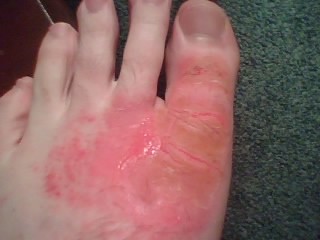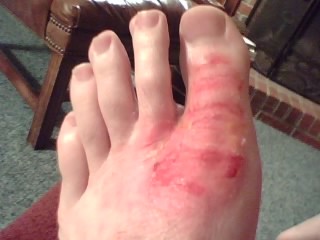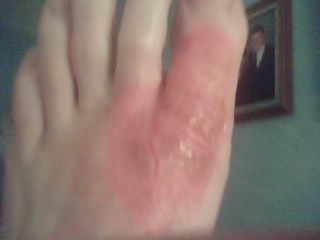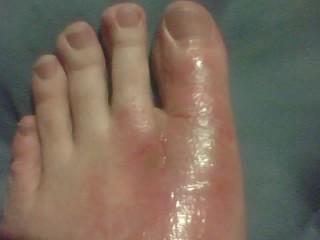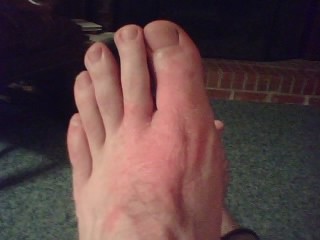Hand Psoriasis and Foot Psoriasis Treatment
Treatment of Hand Psoriasis and Foot Psoriasis
Hand Psoriasis and Foot Psoriasis (palmoplantar psoriasis) can be easy to solve with the use of Psoriasis-Ltd III as the patient begins to see an improvement within days. See the picture of the foot below.
|
|
|
|
|
|
|
It can be difficult to control the triggers that cause Palmoplantar psoriasis to flare, but we can control how we respond to each episode of psoriasis. Psoriasis-Ltd is a blend of soothing, beneficial ingredients specially formulated to address the symptoms of plaque psoriasis.
What is Hand Psoriasis and Foot Psoriasis?
A variant of pustular psoriasis, Palmoplantar psoriasis, is a form of psoriasis in which the pustules occur in a more localized area. Palmar-plantar psoriasis gets its name from the location of occurrence - Psoriasis of the palms, of the hands and the soles of the feet. This form of psoriasis is seen as multiple pustules on fleshy areas of the hands and feet, such as the base of the thumb and the sides of the heels.
Causes of Palmoplantar Psoriasis
Research has suggested that a variety of factors can affect Palmoplantar psoriasis.
An overactive response within the immune system can cause the immune system to behave abnormally. This can cause the body to identify the skin as a foreign particle and respond to it as an infection. As a result, the white blood cells release chemicals that cause the inflammation, redness and itching.
Palmoplantar psoriasis has also been linked to a genetic or hereditary link. These genes are involved in the human leukocyte antigen system. Leukocyte is the proper term for white blood cells, and antigens denote small chemicals such as bacteria or viruses that activate an immune system response.
Palmoplantar psoriasis symptoms can come and go and are triggered by conditions that activate the immune system. Cold, dry weather, for example, can cause a flare-up of psoriasis. Stress and other emotional issues, such as unexpressed anger, have also been found to cause symptoms. Medications, such as ACE inhibitors, lithium, beta-blockers and progesterone can either make psoriasis worse or lead to a flare-up. And even an abnormal response to nicotine can trigger flares in individuals with palmoplantar psoriasis.

